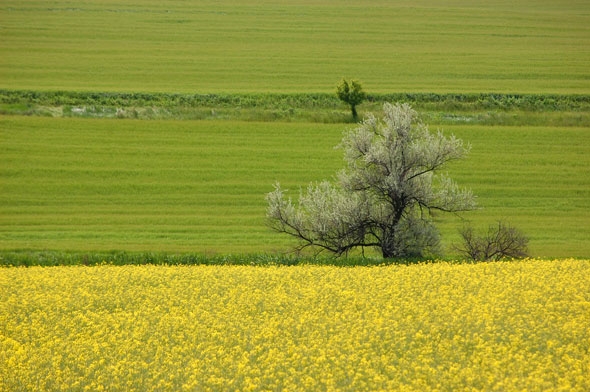C. Robertson McClung, the Patricia F. and William B. Hale 1944 Professor in the Arts and Sciences, recently received a Plant Genome Research Project grant through the National Science Foundation (NSF). The project unites investigators from the University of Wyoming; University of California, Davis; Kansas State University; and Dartmouth College.

Professor Rob McClung is part of a team that has received funding to examine how the productivity certain field crops, such as the field mustard, is influenced by their genes. (photo courtesy of 4freephotos.com)
The project entitled “Agroecological Annotation of Gene Function and Computational Analysis of Gene Networks” will evaluate the response of plants to vegetation density, or “shade avoidance.” Using the plant species Brassica rapa, a leaf vegetable known as field mustard, and Arabidopsis thaliana, a flowering plant found in Africa, Asia, and Europe, the group will computationally reconstruct the genetic network that dictates a plant’s traits and response to vegetation density.
While standard plant research is conducted with controlled mutants and laboratory studies, this project will utilize field studies. Plants with a variety of traits will be grown in real-world conditions of vegetation density treatments, such as with shade or without shade. With these research conditions in place, the team hopes to demonstrate the relevance of gene function in agroecology.
“The goal is to improve our ability to predict the response of a plant to certain environmental conditions likely to be encountered in an agricultural field,” says McClung. “This should help scientists and seed companies to develop varieties optimized for specific environmental conditions, which in turn will allow the farmer to choose which specific seed genotypes to purchase and plant, given the climate and weather conditions that are typical of their farm.”
The project will also have an educational outreach component focused on teachers and students in Wyoming. Ultimately, the collaborators intend to develop evolutionary genetics modules for two-thirds of the state’s biology teachers and provide seed kits for students to experiment with their own plant growth exercises.
“Science can be complicated and intimidating to the non-scientist,” says McClung, who hopes to bring the evolutionary genetics modules to Dartmouth’s surrounding Upper Valley region as well. “The long term competitiveness of our country requires the training of scientists, so it is crucial that students become interested in and recruited to the sciences.”
